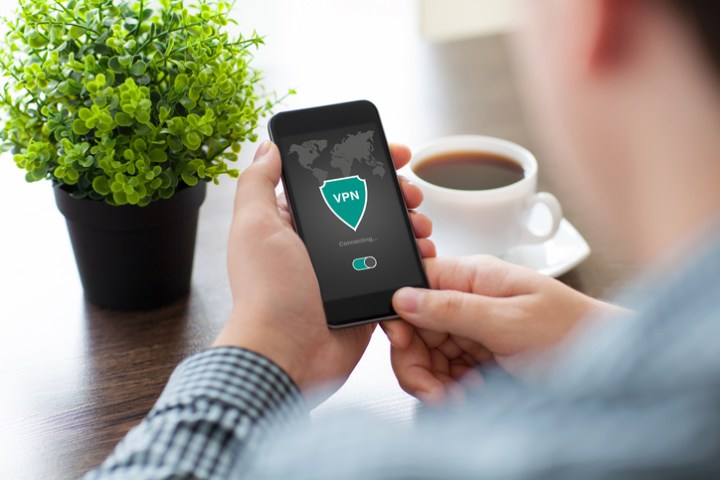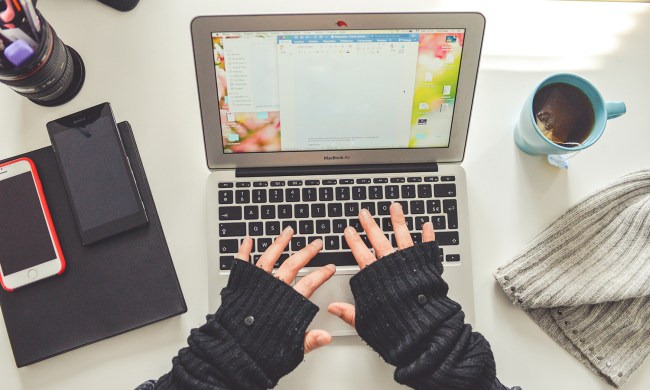This article explains whether or not VPNs are legal to use, but it’s meant only as an educational resource — it is not legal advice.
Because of how a Virtual Private Network or VPN works, it’s understandable that some may think it’s illegal or unethical to use one. Many have associated the technology with illicit activities, including dark web dealings and piracy. The reality, however, is that it’s a perfectly reasonable tool to use while browsing the web or doing things online, and that’s true for everyone. It’s a good thing to know, along with some of the best VPN services for 2021, and the best free VPNs if you’re on a tight budget.
There are legitimate reasons for using a VPN, but first, you must understand how they work and why you’d want one.
What is a VPN really for?

A VPN or Virtual Private Network disguises your primary IP address using a technique called masking. When you connect to the internet through your ISP (Internet Service Provider) you are assigned an IP address, much like your physical home or residential address. That IP serves as a designation and identifier in some cases, but also it’s not a very reliable one — we’ll get to why that is in a bit.
When you connect through a VPN, the tool masks or disguises your original IP address by assigning you a remote one. You connect to a remote server located somewhere, usually in a different country, and so it looks like that’s where you’re located and browsing from.
This does several things. First, it hides your IP address, and thus, it also hides your physical address and identity. Second, it disconnects any internet activities from you — including browsing history. Sure, the first thing that comes to mind is illicit or shady activities, but that’s not the only thing that’s disassociated. Ad networks, marketers, and data farms cannot collect information about you or your family, and what they do get is inaccurate. Internet watchdogs and various parties cannot see what you’re doing, or what websites you visit. Certain trackers and additional security concerns become less so because you’re essentially invisible while you browse.
Most importantly, if you pick the right VPN, your internet traffic and data are encrypted, making it extremely difficult for snoopers to decrypt and access the information.
Other problems do occur related to assigned IP addresses, temporary or not. For instance, the popular online tactic called Swatting — where online users call the police to your home address — is done by looking up your IP address and referencing your physical address. Sometimes, they use other means to find your address, but looking up your IP is one of them.
As a bonus, you can also access region-locked content by making internet applications and websites think you’re located somewhere you’re not. This is because you usually have the option to choose what server or IP location you’re assigned. So, if a movie or show isn’t available to stream on Netflix in, say, the United States, you can reassign your IP to Europe or the UK to watch it.
Are VPNs illegal?

Of course, we still haven’t answered the question of whether or not VPNs are illegal, but now that you understand what they do, and what they protect, you can better understand the “why,” in this case.
In most countries, including the US, VPNs are not illegal to install or use. Some countries do have a firm stance on VPNs, and so it can be a hot topic in those regions. Countries that regulate or ban the use of VPNs include Belarus, China, Iraq, North Korea, Oman, Russia, and the U.A.E. A handful of additional countries impose laws on the use of VPNs dictating how and where they can be applied. It’s also worth noting that some states within the U.S. have laws related to VPNs.
Even in the countries where VPNs are legal to use, all of that goes out the window if you’re using one to commit illegal acts, and that applies within the United States, as well. Some examples of illegal activities are:
- Downloading and selling copyrighted data or information
- Cyberstalking
- Accessing or hacking networks and devices without authorization
- Circumventing a website or app’s protection measures (geo-locking counts)
- Breaching the terms of service for a website or application
Using VPNs to circumvent geo-locked or region-locked content and data is a contentious move. In some countries, it can be illegal. In others, it’s not illegal, but it can get you banned or in trouble with service providers.
Is private browsing really okay?

Not only is private browsing okay, but it’s also recommended. Do you want someone to be able to track all the websites or applications you’ve used? Do you want advertisers and marketers to track every product you’ve viewed, or purchase you’ve made? You may or may not browse pornography. Do you want someone to be able to see everything you’ve looked at or watched?
No, VPNs are not supposed to be used for illegal or illicit activities, but that’s not all they are used for, and they do provide anonymity and privacy to normal people, like you. They also improve security while browsing the web, streaming, and doing various activities online, from all platforms, such as mobile, desktop, game consoles, media players, and beyond.
If you make an online purchase, for example, all data and traffic are encrypted — provided you choose a VPN that encrypts traffic. That means your identity, payment details, purchase history, and everything involved in that transaction are better secured and protected from prying eyes.
Here are a few valid and legitimate examples for having a VPN active:
- While using public or unprotected WiFi networks privately and safely.
- Accessing content that’s not available in your home region.
- Keeping all your browsing, and family’s browsing, private and anonymous.
- Bypassing network restrictions at work, school, and other locations.
- Securing browsing habits, purchase history, and more.
- Better protection against ad and marketing trackers.
Why an IP is an unreliable identifier
It’s also important to point out how a primary IP address works. Remember when we said earlier that it’s not a very reliable identifier? That’s because most IP addresses provided by an ISP are temporary. The protocol is different depending on the devices and provider you’re using, but most of the time, you’ll get a new IP address when the router has been refreshed. Any old IP addresses you’ve been assigned in the past are reassigned.
It means that any browsing history, including bad deeds, attributed to a particular IP address may not be from you, it may come from someone who was assigned the IP address before. What’s more, anyone that connects to your local network — your WiFi — is doing so under the IP address your ISP assigned you. Anyone in your household that does something bad, anyone visiting, or even someone that gains unauthorized access could potentially associate you with whatever they are doing. In other words, if your child or a roommate downloads copyrighted material, and you are the primary account holder with your name connected to the assigned IP, you could end up in trouble.
How do I choose a VPN?
Not all VPNs are created equal. While all generally work the same way, some important distinctions discern whether you are well-protected, or just hidden behind a thinly veiled smokescreen.
- Logs: Some VPNs keep logs of the IP addresses you are assigned, including all activity associated with them. Basically, they render VPNs and private browsing useless. Someone can come in, reference those logs, see what IPs you were assigned, and record all browsing history and activities. Governments actually subpoena VPN providers all the time, so this is a fairly common occurrence. It’s just better for everyone if those logs are never recorded in the first place, or they’re deleted immediately.
- Encryption: Also a big one, active encryption ensures that traffic to and from the VPN is protected behind a layer of encoding. When encryption is used the data is converted into an indecipherable sequence, referred to as ciphertext. Even if someone snoops the data and tries to read the message they’ll see nonsense, unless they have the encryption key — a cipher. Be sure to choose a VPN that uses encryption, best of all, end-to-end encryption.
- Accessibility: Some VPNs are only designed to work on select devices like laptops and computers. That’s no good if you’re using additional platforms to access the internet like mobile, game consoles, streaming platforms, and more. You’ll want to choose a VPN that offers compatibility with a variety of devices and platforms, to protect all of your browsing.
- Price: Although it’s not as much of a priority as some of the other factors, price definitely should play a role in your decision. Shop around and find a budget that you’d like to stick to. The ideal VPN fits within that budget while still offering comprehensive protection.



